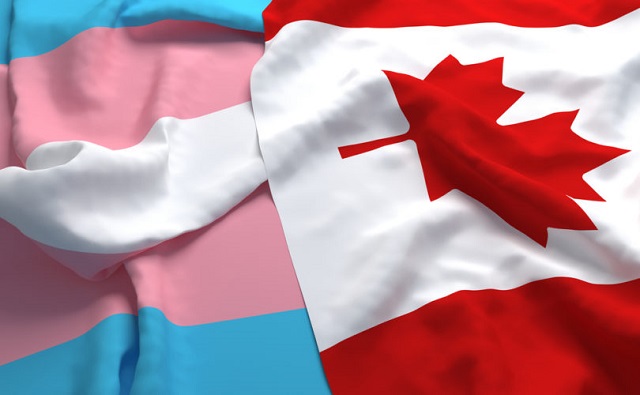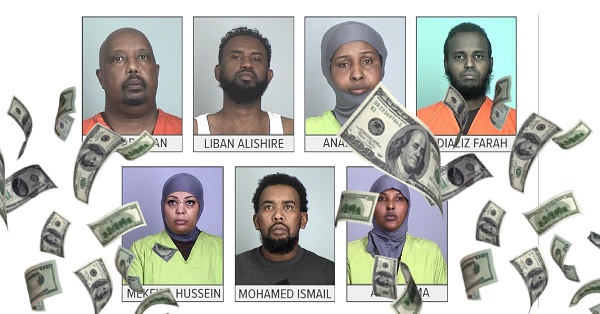Business
Trudeau’s labor minister pushes ‘equity’ mandate to favor LGBT job applicants

From LifeSiteNews
The report presented by Liberal Labour Minister Seamus O’Regan suggests giving special privileges to ‘LGBT-identifying and Black Canadians’ in the hiring process in the name of ‘equity,’ and dismisses concerns that such a move is tantamount to discrimination.
The Trudeau government is celebrating a newly proposed equity mandate which would reward LGBT-identifying job applicants over those with natural sexual proclivities.
On December 11, Liberal Labour Minister Seamus O’Regan announced the Employment Equity Act Review Task Force report, which seeks to add “LGBT-identifying and Black Canadians” to the list of those with special hiring privileges.
“It’s pretty historical,” O’Regan said outside the House of Commons foyer on Monday. “We are naming Black people and 2SLGBTQI+ individuals as designated groups under the Employment Equity Act.”
According to information obtained by the Canadian Broadcasting Corporation (CBC), the Liberal government, under the leadership of Prime Minister Justin Trudeau, “broadly supports” the recommendation.
The report, led by McGill University law professor Adelle Blackett, assured Canadians that it would not lead to “reverse discrimination” or abolish a merit-based hiring system, despite seemingly being formulated to do exactly that.
“Let us be clear: the Employment Equity Act framework does not impose quotas, and the notion of ‘reverse discrimination’ is not part of Canadian equality law and is likewise not part of the Canadian Employment Equity Act framework,” reads the introduction.
While the job candidates would still have to meet certain requirements to be considered for the position, they would not be competing against all candidates for the position but just those within their so-called minority group. As a result, they would have a higher chance of being hired for the position compared to someone who did not fit into the group.
The report dismissed this concern, however, labeling it as an American, not Canadian, argument. “The U.S. idea of ‘reverse discrimination’ has in particular gained a lot of attention. It is used so often in common parlance that many people do not recognize that it is not a part of Canadian substantive equality law,” reads the report.
The report also attempted to address the problem that because being an LGBT-identifying person is not an objective category, it is conceivable that people could just say they are members of the LGBT so-called community as a way to gain an advantage in the hiring process.
“Declarations of this nature… would constitute dishonesty in the employment relationship and although the threshold for dismissal on that basis is high, contextual factors to assessing the appropriate sanction would rationally include any preferential treatment received on the basis of the false statement,” the report said.
In recent years, there has been a push for in Canada, the United States and much of the West to go along with so-called “diversity, equity, & inclusion” (DEI) hiring and promotion practices.
The controversy surrounding DEI is that it usually goes hand-in-hand with a slew of identity-based social causes and grievances that undermine merit-based hiring, meaning that the most qualified person for a job may be overlooked in favor of someone of a particular skin color, ethnicity or sexual proclivity.
In 2019, the Canadian military was exposed for periodically closing all applications to the armed forces except to women if their so-called employment equity targets had not been met.
Similarly, in June 2023, Ontario announced free training for truck drivers; however, the offer was only extended to “women, newcomers and others from underrepresented groups,” effectively barring anyone except white, heterosexual men.
Additionally, this October, British Columbia construction companies were offered an extra cash incentive if they hire first-year apprentices who “self-identify” as LGBT, disabled, or anything other than a white heterosexual male.
Business
Largest fraud in US history? Independent Journalist visits numerous daycare centres with no children, revealing massive scam

A young journalist has uncovered perhaps the largest fraud scheme in US history.
He certainly isn’t a polished reporter with many years of experience, but 23 year old independent journalist Nick Shirley seems to be getting the job done. Shirley has released an incredible video which appears to outline fraud after fraud after fraud in what appears to be a massive taxpayer funded scheme involving up to $9 Billion Dollars.
In one day of traveling around Minneapolis-St. Paul, Shirley appears to uncover over $100 million in fraudulent operations.
🚨 Here is the full 42 minutes of my crew and I exposing Minnesota fraud, this might be my most important work yet. We uncovered over $110,000,000 in ONE day. Like it and share it around like wildfire! Its time to hold these corrupt politicians and fraudsters accountable
We ALL… pic.twitter.com/E3Penx2o7a
— Nick shirley (@nickshirleyy) December 26, 2025
Business
“Magnitude cannot be overstated”: Minnesota aid scam may reach $9 billion

Federal prosecutors say Minnesota’s exploding social-services fraud scandal may now rival nearly the entire economy of Somalia, with as much as $9 billion allegedly stolen from taxpayer-funded programs in what authorities describe as industrial-scale abuse that unfolded largely under the watch of Democrat Gov. Tim Walz. The staggering new estimate is almost nine times higher than the roughly $1 billion figure previously suspected and amounts to about half of the $18 billion in federal funds routed through Minnesota-run social-services programs since 2018, according to prosecutors. “The magnitude cannot be overstated,” First Assistant U.S. Attorney Joe Thompson said Thursday, stressing that investigators are still uncovering massive schemes. “This is not a handful of bad actors. It’s staggering, industrial-scale fraud. Every day we look under a rock and find another $50 million fraud operation.”
Authorities say the alleged theft went far beyond routine overbilling. Dozens of defendants — the vast majority tied to Minnesota’s Somali community — are accused of creating sham businesses and nonprofits that claimed to provide housing assistance, food aid, or health-care services that never existed, then billing state programs backed by federal dollars. Thompson said the opportunity became so lucrative it attracted what he called “fraud tourism,” with out-of-state operators traveling to Minnesota to cash in. Charges announced Thursday against six more people bring the total number of defendants to 92.
BREAKING: First Assistant U.S. Attorney Joe Thompson revealed that 14 state Medicaid programs have cost Minnesota $18 billion since 2018, including more than $3.5 billion in 2024 alone.
Thompson stated, "Now, I'm sure everyone is wondering how much of this $18 billion was… pic.twitter.com/hCNDBuCTYH
— FOX 9 (@FOX9) December 18, 2025
Among the newly charged are Anthony Waddell Jefferson, 37, and Lester Brown, 53, who prosecutors say traveled from Philadelphia to Minnesota after spotting what they believed was easy money in the state’s housing assistance system. The pair allegedly embedded themselves in shelters and affordable-housing networks to pose as legitimate providers, then recruited relatives and associates to fabricate client notes. Prosecutors say they submitted about $3.5 million in false claims to the state’s Housing Stability Services Program for roughly 230 supposed clients.
Other cases show how deeply the alleged fraud penetrated Minnesota’s health-care programs. Abdinajib Hassan Yussuf, 27, is accused of setting up a bogus autism therapy nonprofit that paid parents to enroll children regardless of diagnosis, then billed the state for services never delivered, netting roughly $6 million. Another defendant, Asha Farhan Hassan, 28, allegedly participated in a separate autism scheme that generated $14 million in fraudulent reimbursements, while also pocketing nearly $500,000 through the notorious Feeding Our Future food-aid scandal. “Roughly two dozen Feeding Our Future defendants were getting money from autism clinics,” Thompson said. “That’s how we learned about the autism fraud.”
The broader scandal began to unravel in 2022 when Feeding Our Future collapsed under federal investigation, but prosecutors say only in recent months has the true scope of the alleged theft come into focus. Investigators allege large sums were wired overseas or spent on luxury vehicles and other high-end purchases. The revelations have fueled political fallout in Minnesota and prompted renewed federal scrutiny of immigration-linked fraud as well as criticism of state oversight failures. Walz, who is seeking re-election in 2026 after serving as Kamala Harris’ running mate in 2024, defended his administration Thursday, saying, “We will not tolerate fraud, and we will continue to work with federal partners to ensure fraud is stopped and fraudsters are caught.” Prosecutors, however, made clear the investigation is far from finished — and warned the final tally could climb even higher.
-

 International16 hours ago
International16 hours agoOttawa is still dodging the China interference threat
-

 Business14 hours ago
Business14 hours agoThere’s No Bias at CBC News, You Say? Well, OK…
-

 Automotive13 hours ago
Automotive13 hours agoCanada’s EV gamble is starting to backfire
-

 International15 hours ago
International15 hours ago2025: The Year The Narrative Changed
-

 Fraser Institute1 day ago
Fraser Institute1 day agoCarney government sowing seeds for corruption in Ottawa
-

 Daily Caller1 day ago
Daily Caller1 day agoWhile Western Nations Cling to Energy Transition, Pragmatic Nations Produce Energy and Wealth
-

 Alberta1 day ago
Alberta1 day agoAlberta Next Panel calls for less Ottawa—and it could pay off
-

 Business1 day ago
Business1 day agoResidents in economically free states reap the rewards






